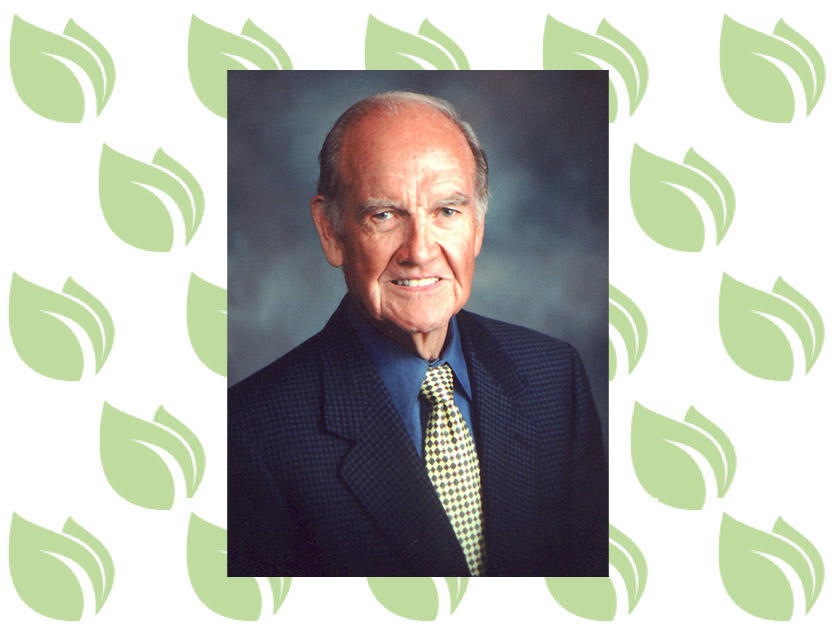We have been reminded by Bob Woodward and Carl Bernstein that fifty years ago on June 17, 1972, the Democratic Headquarters at the Watergate was broken into by those who worked for the Committee for the Reelection of the President. CREEP. (Washington Post.) Watergate contributed to the landslide victory of President Nixon over the Democratic Nominee, Senator George McGovern (D-SD) but President Nixon would have won without Watergate. Then in 1974, President Nixon became the first president in history to resign the presidency rather than face certain impeachment.
But whatever happened to Senator George McGovern?
McGovern went on to win his reelection to the Senate in 1974 even though he had lost his home state of South Dakota to President Nixon in 1972. McGovern then had a historic run teaming up with Senator Bob Dole (R-KS), his nemesis during the 1972 campaign, creating a legacy on nutrition that has stood the test of time.
Senator George McGovern would have celebrated his one-hundredth birthday this year on July 19th. This summer also marks fifty years since he received the 1972 Democratic Nomination for President of the United States (and ten years since his passing at age 90). This little-known prairie populist from South Dakota became the Nominee for President in 1972 after tackling two of the most contentious issues of the day.
First, the 1968 Democratic Convention had been marked by riots and boss tactics. After the Convention, the Democratic National Committee created a commission to rewrite the delegate selection process. Senator McGovern chaired the Commission and proposed a new delegate selection process more transparent, democratic, and credible. Soon, it would be largely standard for both parties. But by 1972, just four years later, McGovern understood the new nomination rules far better than others.
Second was the Vietnam War, which by late 1971 had killed almost 50,000 American young men and hundreds of thousands of Vietnamese with little to show for the effort. Senator McGovern had teamed up with Senator Mark Hatfield (R-OR) to offer an amendment to the 1970 Appropriations bill limiting funding for the war. His speech to the Senate was extraordinary and created a vast constituency:
“Every senator in this chamber is partly responsible for sending 50,000 young Americans to an early grave. This chamber reeks of blood. Every Senator here is partly responsible for that human wreckage at Walter Reed and Bethesda Naval and across our land—young men without legs, or arms, or genitals, or faces or hopes.”
Unknown to most Americans at the time, McGovern had an extraordinary combat record from World War II. During that conflict, he flew 35 highly dangerous combat missions over Europe as a bomber pilot earning the Distinguished Flying Cross. But McGovern thought the record was inconsistent with his role as a “peace candidate” and did not mention his WWII war record during the 1972 campaign. When the truth came out with the publication of his wartime memoirs years later, people were surprised.
While the Senator lost in 1972, McGovern brought into politics a new generation of leadership. Bill Clinton, his Texas Coordinator, became President. Gary Hart, the campaign manager, became a Senator from Colorado; Jim McGovern (not a relative of the Senator) is currently a Member of Congress from Massachusetts; and Tom Daschle went on to become a Senator from South Dakota and Leader of the Senator. Other staff members became Federal Judges or political leaders.
After the loss in 1972, McGovern teamed up with a top Senate Republican, former Chairman of the Republican National Committee, Senator Bob Dole (R-KS), in a historic assault on hunger, both here in the United States and eventually on a global level.
Together they led the way to expand and reform the Food Stamp Program (now called SNAP), school lunch and breakfast, and create the Special Supplemental Nutrition Program for Women, Infants and Children (WIC) working with Senator Hubert Humphrey. After both Senator McGovern and Senator Dole left the Senate, they continued to work together and with President Bill Clinton created a global school nutrition that feeds millions of children all over the world. These programs have been particularly important in the face of COVID and now the war in Ukraine.
At his death in 2012, McGovern was hailed as a consistent, honorable, and accomplished man who stood on principle.
Senator Bobby Kennedy (D-NY) had once referred to McGovern as “the most decent man in the Senate” and I suspect many of his colleagues at the time would have agreed. I suspect most of us would be pleased with a legacy of helping to focus the country on the evils of the Vietnam war and leading the fight against hunger. That’s how George McGovern should be remembered. He was a winner in the end.
Marshall Matz is Chairman of OFW Law in Washington, D.C. He was General Counsel to Senator George McGovern in the 1970s and a friend thereafter.
For more ag news and opinion pieces, visit www.Agri-Pulse.com.

